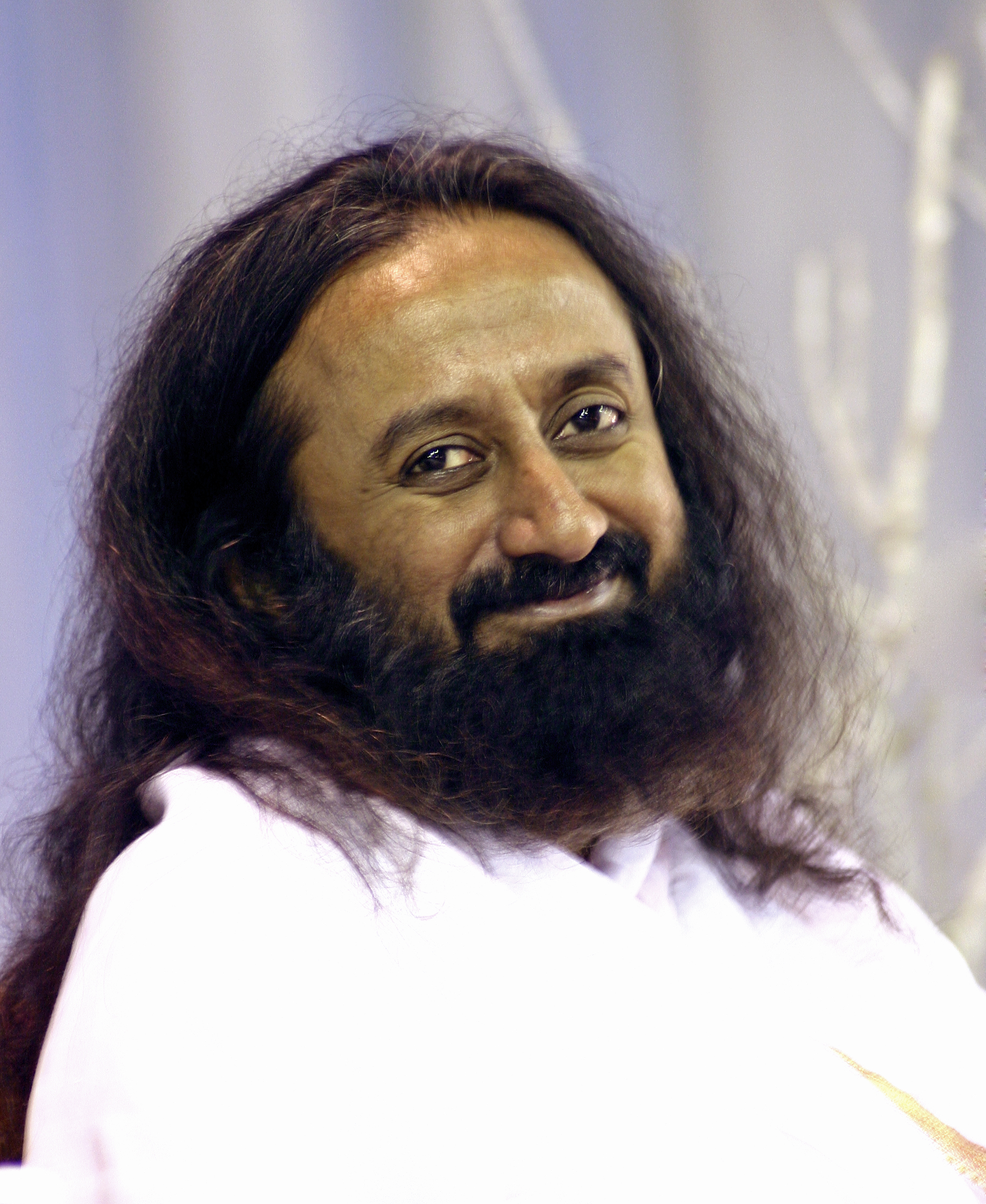Narada Bhakti Sutras (2001)
Contexto: A million words cannot express what a glance can convey, and a million glances cannot express what a moment of silence can. A moment of silence conveys so much more than any other expression. Still, love is beyond silence too. You can describe silence to some extent, but that which is beyond silence cannot be expressed. You give, you hug... but still something remains unexpressed.
Ravi Shankar: Frases em inglês
Fonte: Celebrating Silence: Excerpts from Five Years of Weekly Knowledge 1995-2000
Narada Bhakti Sutras (2001)
Contexto: A million words cannot express what a glance can convey, and a million glances cannot express what a moment of silence can. A moment of silence conveys so much more than any other expression. Still, love is beyond silence too. You can describe silence to some extent, but that which is beyond silence cannot be expressed. You give, you hug... but still something remains unexpressed.
“Charity should be self-sustainable.”
Interview with Forbes Magazine (2009)
Contexto: Charity should be self-sustainable. That is, it should create more wealth rather than perpetuating the cycle of poverty and dependence. In this sense, the best form of charity would be providing quality education for children and more importantly, building a good character in them.
“The key is to harness the ancient wisdom and being innovative with the modern.”
The Hindustan Times (Nov., 2009)
Contexto: Pluralism and embracing people of all cultures should be part of our education. The multicultural, multi-religious fabric are the glory and beauty of the planet. If this thought is imparted to children at an early age, they will love the difference. We need to bring about that multi-cultural and multi-ethnic approach, which in Sanskrit we call Vasudhaiva Kutumbakam (The whole world is one family.)
Through right education, we can change and unite the hearts and minds of people. The key is to harness the ancient wisdom and being innovative with the modern. We, as global citizens, should vow to take this responsibility.
“All that is needed to make life harmonious, palatable, blissful – is called the Art of Living.”
Public Talk, Budapest, Hungary (June 2009)
Contexto: All that is needed to make life harmonious, palatable, blissful – is called the Art of Living. In a guitar, all the six strings have to be tuned; a drum needs to be tuned. Similarly, the various aspects of life have to be tuned. Our relationship with our Self, the people in our family, in the work-place, in society – all these need to be tuned.
The nurturing of the physical, social and spiritual aspects is called the Art of Living.
“Mind without agitation is meditation. Mind in the present moment is meditation.”
"What is Meditation?" (2006)
Contexto: Mind without agitation is meditation. Mind in the present moment is meditation. Mind that has no hesitation, no anticipation is meditation. Mind that has come back home, to the source, is meditation. Mind that becomes ‘‘no mind’’ is meditation.
The Hindustan Times (Nov., 2009)
Contexto: Pluralism and embracing people of all cultures should be part of our education. The multicultural, multi-religious fabric are the glory and beauty of the planet. If this thought is imparted to children at an early age, they will love the difference. We need to bring about that multi-cultural and multi-ethnic approach, which in Sanskrit we call Vasudhaiva Kutumbakam (The whole world is one family.)
Through right education, we can change and unite the hearts and minds of people. The key is to harness the ancient wisdom and being innovative with the modern. We, as global citizens, should vow to take this responsibility.
“Faith is realizing that you always get what you need.”
Fonte: Celebrating Silence: Excerpts from Five Years of Weekly Knowledge 1995-2000
“Today is a gift from God - that is why it is called the present.”
Fonte: Celebrating Silence: Excerpts from Five Years of Weekly Knowledge 1995-2000
Fonte: Celebrating Silence: Excerpts from Five Years of Weekly Knowledge 1995-2000
Interview with Forbes Magazine (2009)
"What is Meditation?" (2006)
